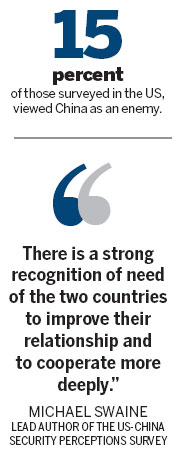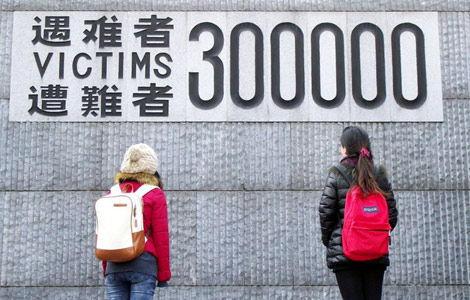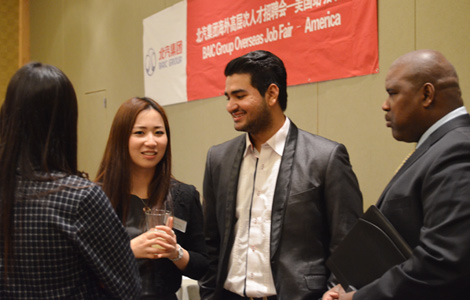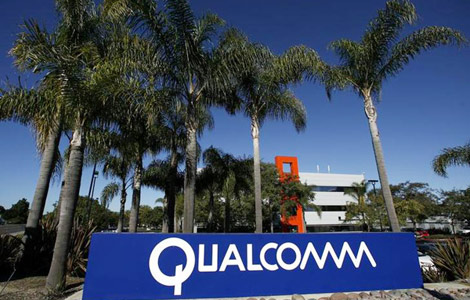US, China not enemies, report says
Updated: 2013-12-12 11:49
By Amy He and Kelly Chung Dawson in New York (China Daily USA)
|
||||||||
While the US and China are frequently portrayed in the media and elsewhere as mutual enemies, a survey shows that the attitudes of Americans and Chinese toward each other's country are less extreme.
The US-China Security Perceptions Survey, released Thursday by the Carnegie Endowment for International Peace and the China Strategic Culture Promotion Association, showed that low percentages of the US and Chinese public viewed the other country as an enemy - 15 percent in the US and 12 percent in China.
The percentages were even smaller with the US elites (consisting of government officials, scholars, business leaders and others), with 2 percent of the government and 1 percent of business leaders saying they viewed China as an enemy.
Majorities of the US and Chinese publics and elites said the other country was a competitor, and a minority said the other country was a partner.
But a major takeaway of the report is that "there's a high level of distrust both among elites and the publics in both countries towards the other," said Michael Swaine, lead author of the report and an analyst on Chinese security issues at the Carnegie Endowment for International Peace.

Only 26 percent of the US public said China can be trusted a "great deal/fair amount," and 13 percent of the Chinese public said the same about the US, according to the data. The authors noted that levels of trust were slightly higher among youth and scholars in both countries.
On the other hand, "there is a strong recognition of need of the two countries to improve their relationship and to cooperate more deeply," Swaine said in a press briefing on Wednesday about the survey's results.
A large majority of US government officials and media elites - 81 percent and 94 percent, respectively - believe that building a strong relationship with China is important priority to US policy, and majorities of Chinese officials and media elites said the same thing, according to the survey.
Swaine said that in itself is not that shocking, "but it does suggest that there isn't a confirmation of the more extremist interpretations of the relationship that people often see in mass media or in other places."
The survey was conducted in the middle of last year among 1,004 US adults representing the general public and 305 US elites. In China, 2,597 Chinese adults representing the general public were surveyed along with 358 elites.
On the subject of global leadership, the majority of respondents said they felt their own countries should play a "shared leadership role," but there was a "non-negligible" percentage of Chinese who thought the US should continue to play a leadership role (19 percent of the public, 21 percent among government elites).
The Chinese responses didn't "present this view of yearning to replace the US as the global superpower by any means," Swaine said.
The results could reflect, Swaine said, that the Chinese public and elites didn't think China is capable at the moment of being a sole leader, and it could also "tell us that the general belief in Chinese thinking is that a dominant single power is a hegemonic power, and they see that sort of role not as one of benign leadership, but as one of lording it over other countries, and they don't want to see China doing that."
Contact the writers at amyhe@chinadailyusa.com and kdawson@chinadailyusa.com
(China Daily USA 12/12/2013 page1)
Most Viewed
Editor's Picks

|

|

|

|

|

|
Today's Top News
Japan told to stop Diaoyu Islands provocation
NSA: surveillance best way to protect US
US and China not enemies, report says
NTSB holds Asiana 214 hearing
BAIC races to new goals
Lee named head of Patent Office
Explose bank loan rise may spark tightening of credit
'Containing China' Japan's strategy
US Weekly

|

|
















